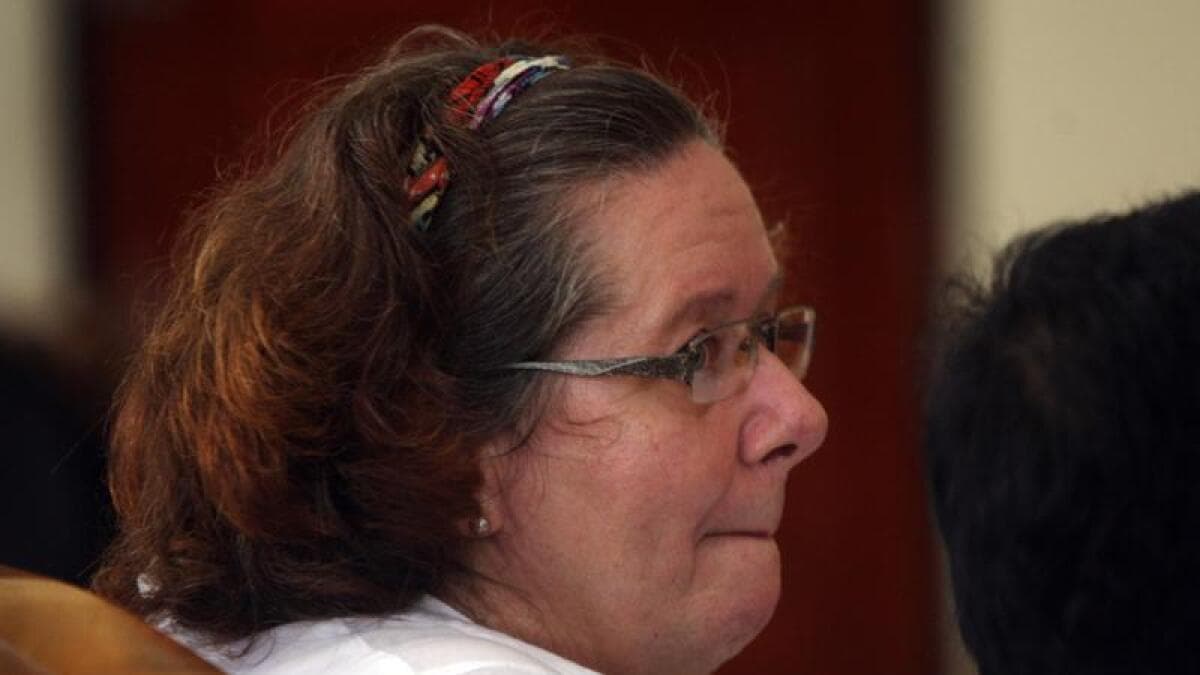We're loading the full news article for you. This includes the article content, images, author information, and related articles.
A British grandmother, Lindsay Sandiford, facing execution in Indonesia for drug smuggling, will be repatriated to the UK under a new bilateral agreement, highlighting a humanitarian approach to foreign prisoners.

Lindsay Sandiford, a 68-year-old British national who has been on death row in Indonesia since 2012 for drug trafficking, is set to be repatriated to the United Kingdom. This development follows a bilateral agreement signed on Tuesday, October 21, 2025, between Indonesia and the UK, which also includes the transfer of another British prisoner, Shahab Shahabadi, 35, serving a life sentence for drug offences.
The agreement was signed in Jakarta by Indonesia's Coordinating Minister for Law, Human Rights, Immigration, and Corrections, Yusril Ihza Mahendra, and the British Secretary of State for Foreign, Commonwealth, and Development Affairs, Yvette Cooper. Ms. Cooper participated virtually, with UK Ambassador to Indonesia Dominic Jermey signing on her behalf. The repatriation is being carried out on humanitarian grounds, citing Ms. Sandiford's deteriorating health, including diabetes and hypertension, and Mr. Shahabadi's severe skin and mental health conditions.
Ms. Sandiford was arrested in Bali in May 2012 after authorities discovered 3.8 kilograms of cocaine, valued at approximately $2.5 million, hidden in her suitcase. She maintained during her trial that she was coerced into carrying the drugs by a gang that threatened her children. Despite her plea, she was sentenced to death by firing squad in 2013, a verdict upheld by Indonesia's highest court.
Indonesia maintains some of the world's strictest drug laws, with drug trafficking often punishable by death. The country's stance on narcotics has resulted in hundreds of individuals, including many foreigners, being on death row. However, under President Prabowo Subianto's administration, Indonesia has shown a willingness to repatriate foreign prisoners through bilateral agreements, a practice that has seen the return of a Filipina woman facing the death penalty and five Australians convicted of heroin trafficking.
The transfer of prisoners will proceed after both countries complete technical and administrative steps. This process involves exchanging official documents, verifying the prisoners' legal status and health, and formal agreement between the governments. A technical meeting is scheduled for Thursday, October 23, to finalise these arrangements.
In Kenya, while the death penalty remains a legal punishment for offenses such as murder, robbery with violence, and treason, no executions have been carried out since 1987. This classifies Kenya as an 'abolitionist de facto' state. Public opinion in Kenya on the death penalty is complex, with initial support often declining when confronted with the practical realities of capital punishment.
Indonesian Minister Yusril Ihza Mahendra emphasised that the repatriation reflects a shared commitment to humanitarian and human rights principles, particularly for seriously ill foreign nationals. British Foreign Secretary Yvette Cooper highlighted the health challenges faced by both prisoners.
The repatriation sets a precedent for how Indonesia handles foreign prisoners, particularly those with severe health issues, and underscores the role of diplomatic engagement in such cases. For Kenya, which also grapples with drug trafficking and capital punishment, this case may offer insights into alternative approaches to managing foreign nationals convicted of serious crimes, especially given the country's de facto abolitionist status.
The exact timeline for the physical transfer of Ms. Sandiford and Mr. Shahabadi to the UK remains unclear, pending the completion of administrative procedures. The British Embassy in Jakarta has directed all inquiries regarding the transfer to Indonesian authorities.
The agreement was signed on Tuesday, October 21, 2025. A technical meeting is scheduled for Thursday, October 23, to finalise the transfer arrangements. The transfer is expected to occur within approximately two weeks.
Observers will be keen to follow the logistical execution of the repatriation and any further statements from both the Indonesian and British governments regarding the prisoners' transfer. The case may also influence future discussions on capital punishment and prisoner exchange agreements between nations, particularly in regions with strict drug laws.
Keep the conversation in one place—threads here stay linked to the story and in the forums.
Sign in to start a discussion
Start a conversation about this story and keep it linked here.
Other hot threads
E-sports and Gaming Community in Kenya
Active 9 months ago
The Role of Technology in Modern Agriculture (AgriTech)
Active 9 months ago
Popular Recreational Activities Across Counties
Active 9 months ago
Investing in Youth Sports Development Programs
Active 9 months ago